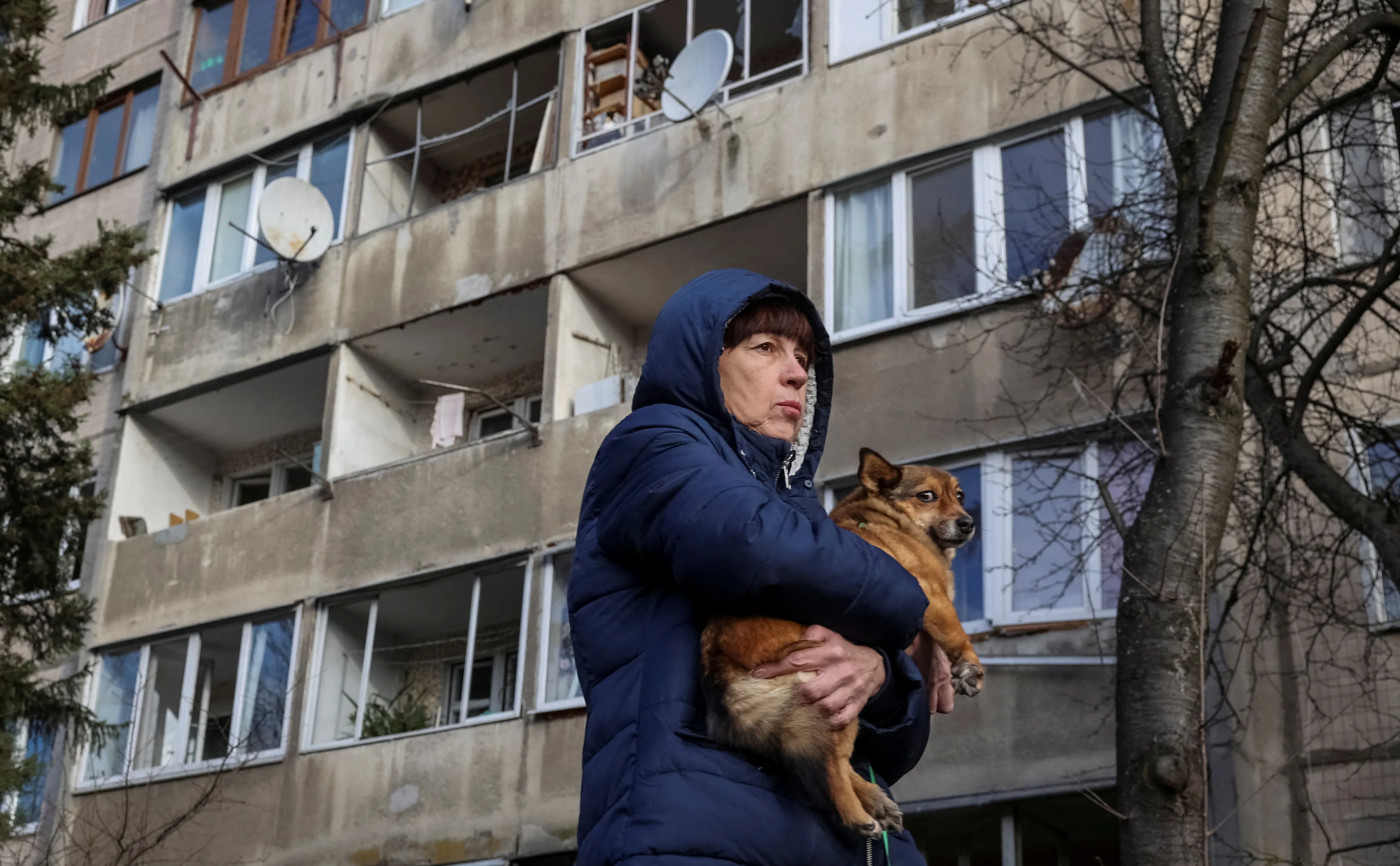Russia Lost 10,000 Artillery Systems in Ukraine War, Kyiv Claims
Russian forces fighting in Ukraine have now lost 10,000 artillery systems, per the latest battlefield estimates produced by Kyiv, even as the artillery war again swings in Moscow's favor amid a shell famine for Ukrainian forces.
Ukraine's Defense Ministry on Tuesday said on X, formerly Twitter, that another 16 Russian artillery systems were "eliminated" in the previous 24 hours, bringing the wartime total to 10,009. Tuesday's figures also included another 850 "eliminated" troops, increasing the sum to 411,550; 16 more armored combat vehicles, giving 12,494; and one more tank, bringing the total to 6,556. Newsweek is unable to independently verify these figures and has contacted the Russian Defense Ministry by email to request comment.
The two-year-old full-scale invasion has often been shaped by artillery, whether in the initially fluid mechanized movements of spring 2022, or the grinding battles of attrition that subsequently developed along the southern and eastern fronts.
Russia began the war with a notable artillery superiority, able to field around eight times as many big guns as Ukraine in the first year of the invasion. This meant Moscow's gunners were routinely able to fire far more shells than their Ukrainian enemies, making offensive operations difficult and costly for Kyiv.
A flood of Western support helped even out the artillery duel, with NATO-made guns and munitions helping Kyiv's gunners subdue Russia's "God of War"—as Russian artillery has long been nicknamed.
Ukraine's artillery became even more potent with the arrival of dual-purpose improved conventional munitions—cluster bomblet artillery shells—in summer 2023.
The greater spread of these munitions, compared with a single high explosive shell, produced a spike in Russian artillery losses. Meanwhile, Ukrainian deep strikes constricted supply for Russia's gunners.
In November, Ivan Stupak—a former officer in the Security Service of Ukraine and now an adviser to the Ukrainian parliament's national security, defense and intelligence committee—told Newsweek that Kyiv's artillery campaign was "really a big problem for the Russians." Stupak added: "Russian artillery stockpiles are totally depleted."
Still, as 2023 drew to a close, Ukraine again began suffering from a lack of munitions. The European Union commitment of 1 million shells proved overly ambitious, with only around half of those promised delivered. And in the U.S., a partisan congressional showdown is still holding up a $60 billion aid package, which includes vital weapons and ammunition.
Russia, meanwhile, has been spooling up supply from partner nations, including North Korea and Iran. Moscow is simultaneously putting the country's economy onto war footing, enabling it to outproduce the U.S. and its Western allies.
This week, Ukrainian Defense Minister Rustem Umerov said there is a notable gap between Western weapon commitments and deliveries. "Fifty percent of commitments are not delivered on time," he said.
Ukrainian commanders blamed the dearth of Western munitions for their withdrawal from the fortress city of Avdiivka earlier this month. There, Ukrainian soldiers reported being fatally outgunned on the ground and in the air.
"Unfortunately, keeping Ukraine in the artificial deficit of weapons, particularly in deficit of artillery and long-range capabilities, allows [Russian President Vladimir] Putin to adapt to the current intensity of the war," Ukrainian President Volodymyr Zelensky said during the Munich Security Conference earlier this month.
Disclaimer: The copyright of this article belongs to the original author. Reposting this article is solely for the purpose of information dissemination and does not constitute any investment advice. If there is any infringement, please contact us immediately. We will make corrections or deletions as necessary. Thank you.
